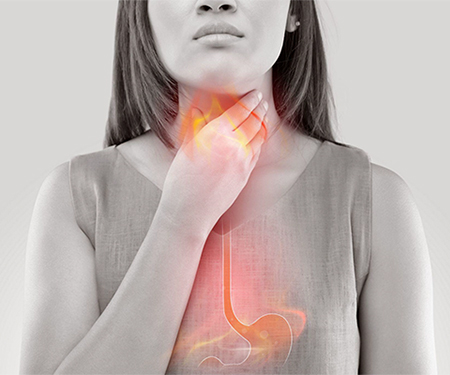
Have you ever eaten something spicy that caused a burning sensation in your chest? If you have, you likely experienced acid reflux. Acid reflux is when stomach acid leaks into the esophagus causing a painful burning sensation.
Whenever acid reflux becomes consistent, it can indicate more serious concerns such as gastroesophageal reflux disease (GERD). GERD occurs when the lower esophageal sphincter muscle becomes weak and relaxed, regularly allowing stomach acid to leak into the esophagus. If persistent acid reflux goes untreated, it can lead to several gastrointestinal complications.
Here are 5 dangers of ignoring persistent acid reflux:
- Esophagitis
The stomach has a lining that protects the organ from its stomach acid, however, this lining is not present in the esophagus. Because of this, when stomach acid leaks into the esophagus, it causes immense irritation and inflammation known as esophagitis. When esophagitis worsens, it can cause esophageal bleeding and ulcers.
- Chronic scarring
As mentioned previously, the esophagus does not have a protective lining like the stomach. Thus over time, persistent leaking of the stomach acid into the esophagus can cause chronic scarring. As scar tissue builds up, this can make swallowing difficult, leading to weight loss and dehydration.
- Tooth decay
Stomach acid can not only hurt your esophagus, but also your teeth. The low pH of the stomach acid can cause major tooth erosion leading to pitted, yellow, and sensitive teeth.
- Barrett’s esophagus
Barrett’s esophagus is a condition that approximately 10-15% of people with GERD develop.1 This occurs when the lining of the esophagus changes becoming more like cells found in the intestines. This condition has a risk of progression into cancer.
- Esophageal cancer
Individuals with GERD have a slightly higher risk of developing esophageal cancer. While only about 0.5% of those with Barrett’s esophagus develop esophageal cancer, the risk is still present.1 If esophageal cancer is not caught early on, it can be fatal.
Fortunately, gastroesophageal reflux disease can be treated with LINX, a minimally invasive procedure utilizing magnetic beads to keep the weakened lower esophageal sphincter muscle closed. However, if treatment isn’t sought in a timely manner irreversible esophageal damage can occur.
If you regularly suffer from acid reflux, schedule a consultation with Dr. Ahmad to put an end to your pain and eliminate further damage.
Dr. Arif Ahmad specializes in laparoscopic robotic surgery and has performed over 2,000 laparoscopic robotic surgeries. He is renowned in the Long Island area for his impeccable track record of safety and success.
- U.S. Department of Health and Human Services. (n.d.). Barrett's esophagus. National Institute of Diabetes and Digestive and Kidney Diseases. Retrieved May 14, 2022, from https://www.niddk.nih.gov/health-information/digestive-diseases/barretts-esophagus









